The International Day of the World's Indigenous Peoples: significance for the world and Ukraine
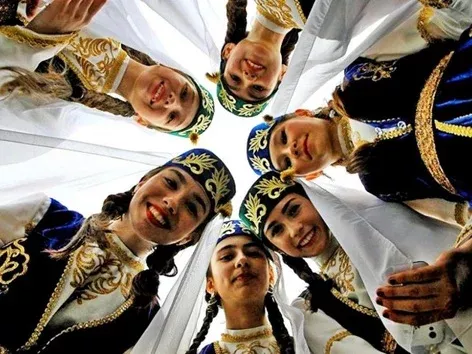
The world celebrates the International Day of Indigenous Peoples every year on August 9. This holiday was established by the UN General Assembly in 1994. On this day, humanity honors the richness of indigenous cultures and their special contribution to the family of nations
On August 9, the entire world community celebrates the International Day of the World's Indigenous Peoples. The event was approved by a resolution of the UN General Assembly in 1994. The main goal of the event is to remind about the importance of preserving the cultural traditions and identity of each people. Conferences and briefings are held around the world on this day.
Three indigenous peoples live on the territory of Ukraine: Crimean Tatars, Karaites and Krymchaks. All of them were formed on the territory of Crimea, and the vast majority of representatives still live in the region.
We talk about the significance of this day for the world and the life of the indigenous peoples of Ukraine under occupation in our material.
How many indigenous peoples are there in the world?
An indigenous people is an ethnic community that has formed on the territory of a certain country, is the bearer of an original language and culture, but does not have its own state.
According to the World Bank, indigenous peoples make up 6% of the world's population and number 476 million people. In general, representatives of indigenous peoples live in more than 70 countries of the world. The vast majority - 70% - are in Asia.
Indigenous peoples include Indians in North and South America (USA, Mexico, Peru, etc.), Sami in Scandinavia, Aborigines in Australia, Maori in New Zealand, Berbers in North Africa, etc. There are at least 5,000 different groups of indigenous peoples, and they speak more than 4,000 different languages out of 6,700 known today. Unfortunately, most of these languages are currently under threat of extinction.
Although all indigenous peoples have different customs and cultures, they face the same harsh realities: displacement from their homelands, denial of the opportunity to express their culture, physical attacks and treatment as second-class citizens.
Indigenous peoples often lack formal recognition of their lands, territories and natural resources, are the last to receive public investment in basic services and infrastructure, and face numerous barriers to full economic participation, access to justice and participation in political processes.
Many indigenous peoples live below the poverty line, and their life expectancy is 20 years shorter than that of non-indigenous peoples.
Protection of the rights of indigenous peoples in Ukraine
In 2021, the President of Ukraine Volodymyr Zelenskyi signed the Law "On Indigenous Peoples of Ukraine", which defines that the indigenous peoples of Ukraine are the Crimean Tatars, Karaites and Krymchaks, who formed on the territory of the Crimean Peninsula. This Law protects the cultural, educational, linguistic and informational rights of indigenous peoples. However, the full enforcement of rights and the implementation of the Law are hindered by the occupation of Crimea and the full-scale russian invasion.
Visit Ukraine on social media: Telegram | YouTube | Instagram | Facebook | Twitter | TikTok
The number of indigenous peoples in Ukraine
According to various sources, the number of Crimean Tatars in Ukraine is about 300,000, Karaites - 1,200, Krymchaks - 400. Together, they make up about 13-15% of the entire population of the temporarily occupied peninsula.
Repression of Ukrainian indigenous peoples
For many years, the Crimean Tatars and Ukrainians stood side by side in the fight against the Moscow invaders. They have been allies since the time of Bohdan Khmelnytskyi.
However, the history of indigenous peoples in Ukraine is quite tragic.
● In 1783, the russian Empire occupied the Crimea, then the actions of the occupiers led to the almost complete assimilation of the Karaites.
● Most of the Krymchaks living on the Crimean Peninsula were shot in 1941, when the region was occupied by the Germans. The people lost up to 80% of their total population.
● During the period of deportation in 1944 and the first years of exile, the Soviet authorities destroyed 46.2% of the representatives of the Crimean Tatar people.
● In 2014, when russia once again occupied Crimea, thousands of Crimean Tatars and ethnic Ukrainians were forced to leave their homes due to an immediate threat to their lives.
● In 2022, after the full-scale russian invasion, those families of Crimean Tatars who settled in the Kherson and Zaporizhzhya regions also suffer from repression. There is also a threat to the cultural centers of the Karaite community in the Azov region, which is also occupied by russian troops.
How does the russian federation violate the rights of indigenous peoples in Crimea?
80% of Crimean political prisoners are Crimean Tatars, in addition, 75% of searches in occupied Crimea take place in the homes of representatives of national minorities.
Also, according to russian legislation, which is currently illegally operating on the territory of Crimea, the Crimean Tatars are not recognized as an indigenous people at all, because in russia only peoples with a population of up to 50 thousand people are "protected".
The occupying authorities in Crimea violate at least 18 articles of the UN Declaration on the Rights of Indigenous Peoples:
● The rights of indigenous peoples not to undergo forced assimilation (Article 8) - since 2014, the number of pupils studying in Crimean Tatar classes has been decreasing in Crimea.
● The right not to be forcibly removed from one's lands (Article 10) – the occupying power threatens to take away lands if a representative of the people refuses to accept citizenship of the russian federation.
● The right to observe and restore one's cultural traditions (Article 11) - now in the occupied Crimea there is a careless attitude and even destruction of Crimean Tatar monuments. A striking example is the damage to the building of the Khan Palace in Bakhchisarai during the "restoration".
● The right to create one's own mass media (Article 16) – after 2014, dozens of Crimean media, which also broadcast Crimean Tatar programs, ceased their work in Crimea.
● The right to preserve and develop one's own institutions (Article 18) – in 2016, the russian authorities recognized the Mejlis of the Crimean Tatar people as an extremist organization and banned its work in Crimea.
● The right to lands, territories and resources (Article 26) – there are known cases when the occupying authorities took land in Yevpatoria and Simferopol, on which Muslim cemeteries were previously located.
● The right to preserve and protect the environment (Article 29) – the occupying power is carrying out massive illegal construction in Crimea, as a result of which water bodies are polluted and the unique nature of the peninsula is destroyed.
● Freedom from military activity on the lands of indigenous peoples (Article 30) – a large number of russian military bases are located in Crimea.
Also, Crimean Tatars, like other Crimeans, are conscripted by the russian federation into the ranks of the occupying army, as a result of which there is now a threat of their use in a war against their own state.
On the International Day of Indigenous Peoples, it is worth reminding the world that in the 21st century, in the very center of Europe, imperial laws continue to rule. The occupying power of Crimea oppresses the rights of the indigenous peoples of Ukraine and even threatens their lives.
You may be interested in:
Visit Ukraine Donation - make a good deed and an important contribution to the Victory of Ukraine;
Visit Ukraine Legal advice - comprehensive legal support on entry to Ukraine;
Visit Ukraine Tours - the largest online database of tours to Ukraine for every taste;
Visit Ukraine Merch - choose patriotic clothing and accessories with worldwide delivery;
Visit Ukraine News - get the latest news and updates in our Telegram channel;
Cooperation - cooperation and advertising integrations with Visit Ukraine and Visit World projects.
Recommended articles
2 min
Popular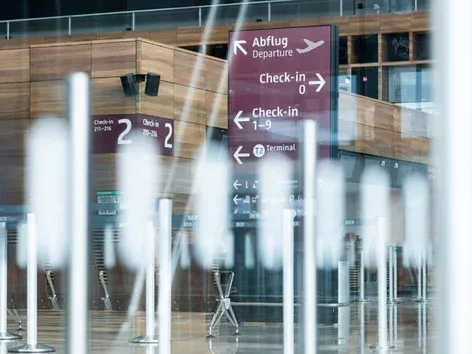
Air and rail flights canceled due to strikes in Europe: changes for passengers
In the coming months, Europe is expected to see massive flight cancellations due to planned strikes. Such changes can significantly affect passenger travel. Here's what travelers should expect and how to get compensation for flight cancelations
07 Aug. 2023
More details2 min
Documents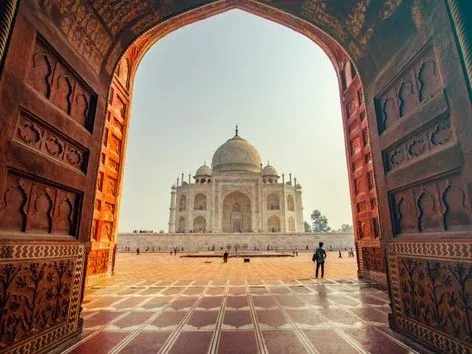
Traveling to Ukraine for Indian citizens: do foreigners need a visa to enter Ukraine
Ukraine and India have agreed on a visa-free regime for foreign nationals for 90 days of stay in the country, but it is not valid for everyone. Therefore, most Indian citizens still need to apply for a visa to enter Ukraine. Find out when Indian citizens need to apply for a visa and what they need to do
08 Aug. 2023
More details2 min
Events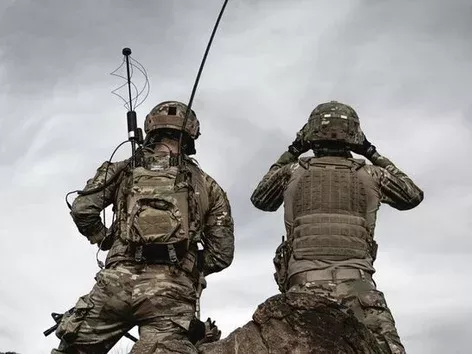
Every year on August 8, Ukraine celebrates the Day of Communications Troops. These units are an important part of the Armed Forces of Ukraine. Find out what responsibilities lie with the signal troops and how their lives have changed since the full-scale invasion of russia
08 Aug. 2023
More details3 min
Way to Victory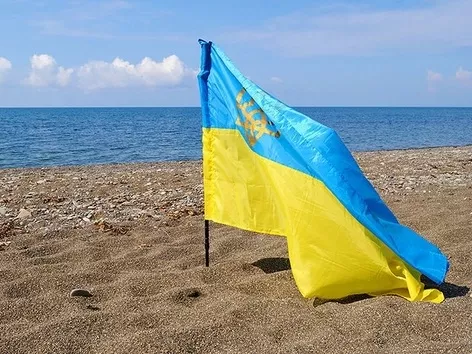
Ukraine is gradually blocking all routes for the supply of weapons and movement of russian reserves in the south of the country. Find out how the strikes on bridges in Crimea and Kherson region will affect the supply of the russian army and Ukraine's counteroffensive
08 Aug. 2023
More details

